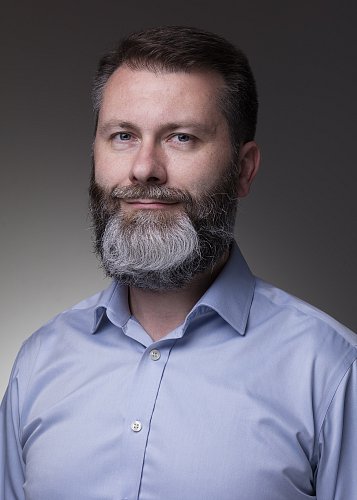PhDr. JUDr. Tomáš Karásek, Ph.D.
PhDr. JUDr. Tomáš Karásek, Ph.D.

Posts:
- Department of Security Studies
- Dean
- Faculty of Social Sciences
- Academic Council
- Executive Council of the Dean
Telephone: +420 222 112 236
Rooms: No. H208, Smetanovo nabrezi 6 , No. B326, Jinonice, building B
ResearcherID: E-9743-2018
ORCID ID: 0000-0002-2444-586X
Since, February 2022, Tomáš Karásek is the dean of Faculty of Social Sciences at Charles University. Before that he was a vice-dean for development (2012-2022) and for international relations (2011-2012). From 2015 to 2022 he was a founding head of the Department of Security Studies. He has been employed at the Institute of Political Studies since 2014, since 2017 as an assistant professor. In his research he focuses primarily on European and transatlantic security and on the concept of strategic culture. Further areas of his interest, reflected in his courses, include conflict studies and ethics of violence. Tomáš holds a Ph.D. in International Relations and a JUDr. in Law, both from Charles University. Between 2010 and 2013 he directed the Research Center at the Association for International Affairs. He is an alumnus of the Fulbright programme, which he spent at Columbia University in New York, and was subsequently named honorary ambassador of the Fulbright Commission in Prague.
Rok vydání
Monographs
- Karásek T., Stejskal L., Anděl P., Moravcová D., Hrubý Z., & Svoboda K. (2008). European Union in a new security environment. Matfyzpress.
- Hynek N., Střítecký V., Karmazin A., Karásek T., Allison R., Bladaité N., Šešelgytė M., Tskhay A., Buranelli F., Spanger H., Zielonka J., Rupnik J., & Hynek N. (2023). Hybridisation of Political Order and Contemporary Revisionism. Routledge.
Chapters in monographs
- Karásek T. (2006). Ministr zahraničí EU a teorie institucionalizace. Evropská unie na počátku 21. století : reformní procesy a institucionální změna (pp. 101-128).
- Karásek T. (2010). CFSP after eastern enlargement : change of policy and institutional reform. European integration: structural changes and their influence on EU diplomatic policies (pp. 15-35).
- Karásek T., & Karásková I. (2010). The impact of Central and Eastern European countries on the changing energy security concept of the EU (after 2004 enlargement). European integration : structural changes and their influence on EU diplomatic policies (pp. 374-387).
Articles
- Karásek T. (2007). Integrace nebo mocenská rovnováha? Konceptualizace 'vysoké' a 'nízké' zahraničně-bezpečnostní politiky v rámci Evropské unie. Mezinárodní vztahy, 42(2), 5-30.
- Karásek T. (2004). Budoucnost transatlantických bezpečnostních vztahů : čtyři scénáře. Mezinárodní vztahy, 39(2), 20-35.
- Karásek T. (2010). Česká republika a zahraniční vojenské operace : formování politického konsensu v letech 1999-2009. Mezinárodní vztahy, 45(4), 29-49.
- Karásek T. (2016). Tracking shifts in strategic culture: analyzing counterinsurgency as a rise of a strategic subculture. Obrana a strategie, 16(1), 113-142.
- Karásek T. (2018). Modes of Strategic Adaptation : NATO and the EU under Revisionist Pressure. Obrana a strategie, 18(2), 43-56. UT-WOS link
- Karásek T. (2020). Between Pastiche and Sampling: NATO's Strategic Adaptation to Russian Revisionism. Europe-Asia Studies, 72(6), 996-1009. UT-WOS link
- Šplíchalová A., Karásek T., & Apeltauer T. (2021). Classification of socio-psychological aspects of protecting soft targets: a case study for the evacuation of railway terminals. Komunikacie, 23(3), 71-82.
Contributions in the conference proceedings
You can find the list of courses in the SIS.
- 2018-2022: Human-Machine Nexus and Its Impact on International Order (UNCE/HUM/037, Charles University Centre of Excellence), senior project member.
- 2019-2021: Classifying social-psychological personal parameters through artificial intelligence and machine vision for the purpose of protection of persons in real time (TL02000352, Technological Agency of the Czech Republic), main investigator.
- 2018-2020: Evolution of unmanned technologies and their societal perception: analysis of opportunities and minimization of risks (TL01000322, Technological Agency of the Czech Republic), member of research team.
Work experience
- since February 2022: dean of the Faculty of Social Sciences, Charles University
- October 2015 – January 2022: head of the Department of Security Studies, Faculty of Social Sciences, Charles University
- June 2012 – January 2022: vice-dean for development, Faculty of Social Sciences, Charles University
- January 2011 – June 2012: vice-dean for international relations, Faculty of Social Sciences, Charles University
- September 2010 – August 2013: director of the Research Center, Association of International Relations, Prague
- since February 2007: assistant professor at the Institute of Political Studies, Faculty of Social Sciences, Charles University
Education
- December 2006: Ph.D. in International Relations at the Faculty of Social Sciences, Charles University (topic of Ph.D. thesis: Theoretical Reflection of the Foreign and Security Policy of the European Union: Overcoming the Intergovernmental Paradigm?)
- March 2004: PhDr. (post-M.A. academic degree) in International Relations at the Faculty of Social Sciences, Charles University (topic of thesis: Eurocorps and the Evolution of the Idea of a European Army in 1990s)
- February 2004: JUDr. (post-LL.M. academic degree) in Law at the Law Faculty, Charles University (Role of Legal Acts in the Process of Legalization of the EU Foreign and Security Policy)
- October 2002: Mgr. (LL.M. equivalent) in Law at the Law Faculty, Charles University (topic of master dissertation: Legal Acts and the Process of Legalization of EU Foreign and Security Policy)
- June 2002: Mgr. (M.A. equivalent) in International Relations at the Faculty of Social Sciences, Charles University (topic of master dissertation: Eurocorps and the Evolution of the Idea of a European Army in 1990s)
- May 2000: Bc. in Political Science and International Relations at the Faculty of Social Sciences, Charles University (topic of bachelor thesis: Dawes Plan and Locarno: Turning Points in the Interwar German Foreign Policy)
- European and transatlantic security
- strategic culture

